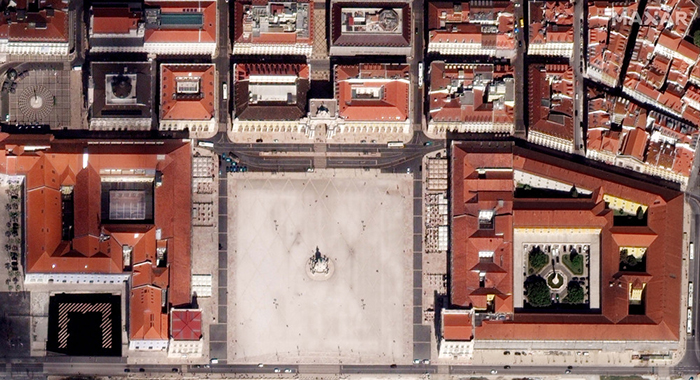 |
|||
|
|||
ADVANTAGE INCUMBENT? — The coronavirus is laying waste to the presidential primary, postponing elections and canceling traditional campaign activities as a fearful nation hunkers down.
And then there's the general election. The conventional wisdom is that President Donald Trump's uneven, and at times chaotic, handling of this crisis is deeply problematic for his reelection chances. But it may not be that simple.
So far, Trump has taken a beating. The economy is tanking, and just 46 percent of Americans believe the federal government is doing enough to confront coronavirus, down from 61 percent last month, according to an NPR/PBS NewsHour/Marist poll
. Few people trust what Trump is saying about the pandemic, the same poll found.
But Trump has time on his side, with the coronavirus spreading early in the election cycle. This week, the Republican president adopted a more somber tone, and Democrats are beginning to worry that he could mold the narrative to his benefit. A massive stimulus, including direct payments to Americans, could help him in November.
"The initial mishandling of the coronavirus by the government doesn't mean voters will penalize Trump in November," said Michael Ceraso, who worked for Sanders in 2016 and was Pete Buttigieg's New Hampshire director before leaving his campaign last year. "We know we have two candidates who can pivot this generation's largest health crisis to their policy strengths. But history tells us that an incumbent who steers us through a challenging time, a la Bush and 9/11 and Obama and the Great Recession, are rewarded with a second term."
And that's exactly how some in Trump's inner circle view it. People close to the Trump campaign acknowledge to our colleague, Alex Isenstadt, that the president didn't handle the response well in the opening weeks. But if the pandemic abates and the economy stabilizes by the fall, they see a scenario in which Trump comes out of the crisis framing it as an American comeback story and positioning himself as the leader who navigated the country through a crisis.
Adding to Democrats' concerns is that it could be months before they mount a unified offensive against Trump. In a normal year, the presidential primary would be shutting down by now, with Joe Biden extending his delegate lead and little left on the electoral map for Bernie Sanders to look forward to.
But the coronavirus is freezing the 2020 campaign.
Maryland announced today that it is delaying its April primary to June 2, becoming the fifth state to push its primary back due to the pandemic. Rallies are canceled, campaign workers — like everyone else — are confined to their homes.
What we're watching — The next 24 hours will be critical to understanding Sanders' intentions. Sanders lost in Florida tonight, and in Illinois
. If he also loses Arizona, he will face enormous pressure to withdraw. But many of his allies are lobbying him to stay in — not to win, likely, but to amass more delegates to help advance progressive policy causes at the Democratic National Convention this summer.
Sanders has staff in place for states voting in late April, suggesting he isn't eyeing the exits. One reason to stay: A lot can happen in two weeks — or longer, if future primaries are delayed. (An idea some, like Tom Ridge and Terry McAuliffe, aren't keen on.)
Welcome to POLITICO Nightly: Coronavirus Special Edition, a nightly intelligence brief from our global newsroom on the impact of the coronavirus on politics and policy, the economy and global health. Reach out: rrayasam@politico.com and @renurayasam.
|
|||
|
A message from Ro:
Telehealth can help slow the spread of COVID-19. Ro is offering solutions at no cost to virtually triage patients, give people access to a doctor at home, and help unburden the healthcare system. Learn more at Ro.co/Coronavirus.
|
|||
|
|||
How can the U.S. build a nationwide system of online voting?
"You should never start building your e-government system from a voting system. It should start with low-risk services like tracking a child's progress at school. The system of voting is made safe by the fact that it's in the government service ecosystem. So when I enter the system, nobody knows that I am going there to vote. I might be there just to check my driver's license. Cyberservices are not necessarily 200 percent safe, but it's definitely safer than paper. Privacy is easier to protect in the digital environment than on paper. We pay 1 percent of our GDP on the upkeep of the government digital ecosystem, but it's money
well-spent because it's a great equalizer." — Estonian President Kersti Kaljulaid, speaking with POLITICO's Ryan Heath.
In the U.S., some election experts warn that an abrupt adoption of vote-by-mail systems in states that aren't sufficiently prepared would introduce new risks and avenues for disruption,
Kim Zetter reports for POLITICO. The results, they say, could bring widespread confusion or even disenfranchise voters.
| |||
|
|



No comments:
Post a Comment
Note: Only a member of this blog may post a comment.